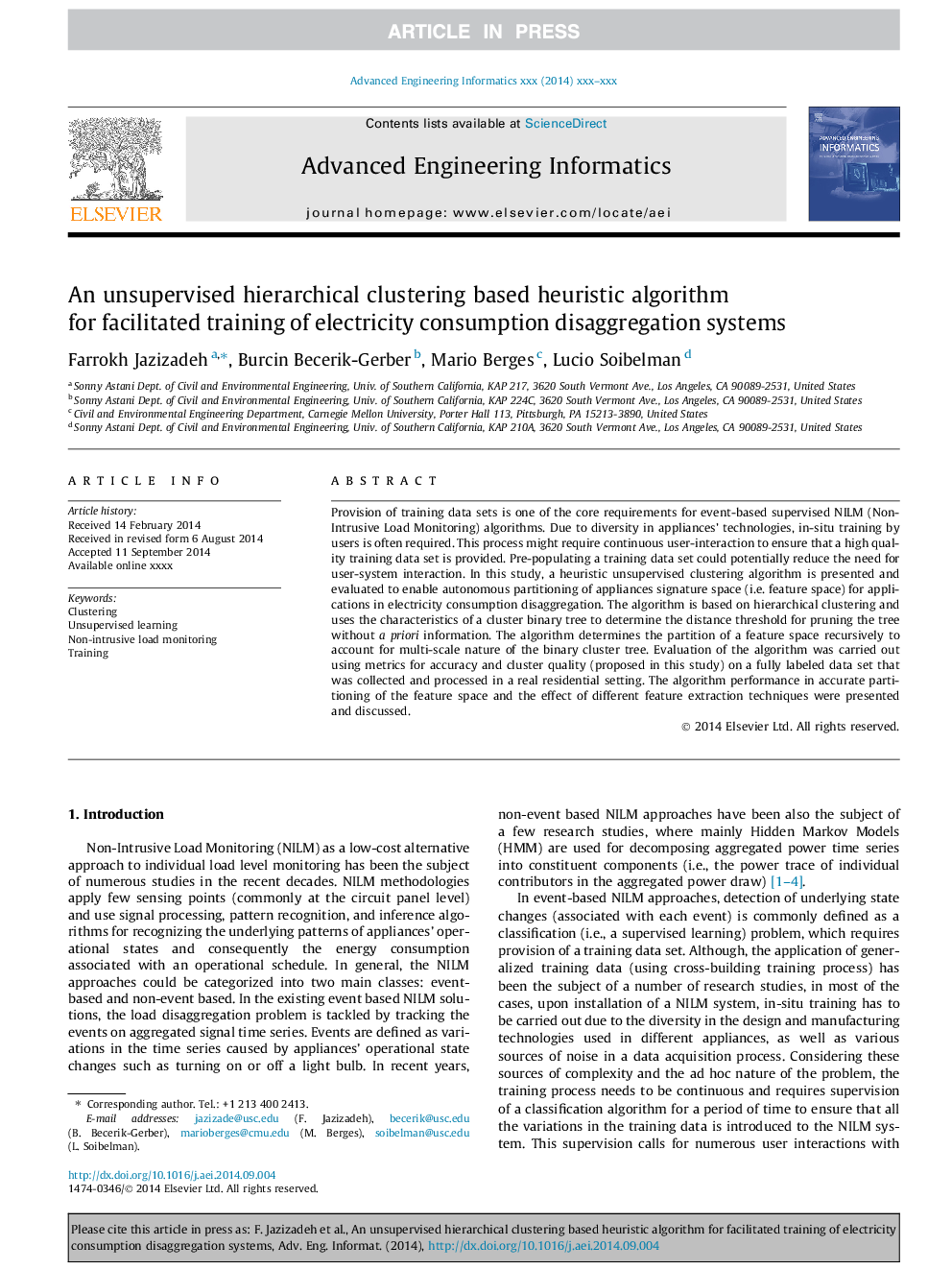| Article ID | Journal | Published Year | Pages | File Type |
|---|---|---|---|---|
| 10281744 | Advanced Engineering Informatics | 2014 | 16 Pages |
Abstract
Provision of training data sets is one of the core requirements for event-based supervised NILM (Non-Intrusive Load Monitoring) algorithms. Due to diversity in appliances' technologies, in-situ training by users is often required. This process might require continuous user-interaction to ensure that a high quality training data set is provided. Pre-populating a training data set could potentially reduce the need for user-system interaction. In this study, a heuristic unsupervised clustering algorithm is presented and evaluated to enable autonomous partitioning of appliances signature space (i.e. feature space) for applications in electricity consumption disaggregation. The algorithm is based on hierarchical clustering and uses the characteristics of a cluster binary tree to determine the distance threshold for pruning the tree without a priori information. The algorithm determines the partition of a feature space recursively to account for multi-scale nature of the binary cluster tree. Evaluation of the algorithm was carried out using metrics for accuracy and cluster quality (proposed in this study) on a fully labeled data set that was collected and processed in a real residential setting. The algorithm performance in accurate partitioning of the feature space and the effect of different feature extraction techniques were presented and discussed.
Related Topics
Physical Sciences and Engineering
Computer Science
Artificial Intelligence
Authors
Farrokh Jazizadeh, Burcin Becerik-Gerber, Mario Berges, Lucio Soibelman,
